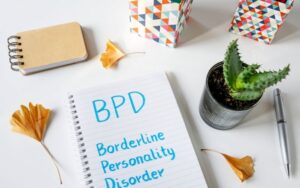6 Tips to Improve Your Mental Health

Most people focus on improving their physical health more because it shapes how they appear to the outside world. But mental health is equally important.
Mental health is the measure of your psychological well-being. It shapes how you perceive the world around you and cope with your life’s realities. It also alters your self-perception, response to stressors, and decisions.
The prevalence of mental health issues is alarming. In 2020, in the US, 52.9 million adults (aged 18 or more) were dealing with AMI (Any Mental Illness). And more females (25.8%) than males (15.8%) were fighting AMI.
The seriousness of the situation calls for immediate individual and collective actions to curb this problem. Collectively, we require nationwide awareness with the help of initiatives and campaigns carried out by the government and civil society. But there is much we can do individually to prevent mental health issues.
Below are some tips to help you increase your resilience and strengthen your response to stressors.
-
Meet people face to face
Technology has increased our convenience. Today we can talk to our loved ones over the phone even if they live far away. But the downside is that our reliance on technology is increasing so much that we have stopped meeting people in person.
Messaging apps, emailing, and audio calls have their place in managing your social connections. Still, they should never replace face-to-face meetings. Therefore, prioritize meeting people in person over audio or video calling.
-
Seeking professional help
When mental health problems reach an extreme stage, you need professional intervention and holistic therapies. Some holistic therapy options focusing on mind and body include yoga, energy work such as Reiki, meditation, nutritional therapy, massage therapy, acupuncture and acupressure, and more. These holistic methods are employed one by one or in the form of a well-planned rehabilitation program.
-
Live an active life
Living an active life is good for your body and mind. There can be various ways to stay active in your daily life—regular exercise is one of the prominent ones.
Besides trimming your waste, keeping you in shape, reducing your weight, and adding a few more years to your life, exercise has tremendous mental health benefits.
Exercise reduces mild depression and stress; it can cure these issues as effectively as antidepressant medications— but without any side effects.
Exercise also improves your mood by improving your self-perception and cognitive functions. Exercise especially helps schizophrenic patients as they are already at the risk of getting obese and have the added risk of gaining weight because of continuous antipsychotic treatment.
Exercise release endorphin—a powerful mood-booster— that reduces stress, energize your spirits, improves moods, and makes you happy. This is why you feel happy and satisfied even after a sweaty and rigorous exercise session.
-
Don’t bottle up
Fear, stress, and worries are normal in everyone’s life. Stress is often your natural response to problems. You can avoid it as much as possible and make your life more streamlined and structured, but you cannot eliminate it.
One thing you can surely do is not to bottle up your feelings. You cannot manage everything or solve your issues on your own. Keeping your emotions and worries inside you inflates and transforms them into something bigger, uglier, and scarier. It feels like you are hiding a monster that needs an escape, but there is no way out.
A study in the Journal of Psychosomatic Research stated that people who bottled up their feelings elevated their risk of early death from all causes by over 30%. The same phenomenon can increase their risk of cancer diagnosis by 70%.
Therefore, even if you are tempted not to disclose your family problems to save your face or for whatever reason, just don’t do it. Talk to your friends, open up with your loved ones, and don’t hesitate to accept how you feel.
-
Do what makes you happy
There is no harm in living your life for others— for your loved ones. But you also need some time for yourself. Make time to do what you love. It could be a walk in the nearby part, reading your favorite book, enjoying a cup of tea/coffee with your friend, or merely cuddling your pet. All these things may seem trivial, but the results are tremendously amazing regarding their mental health effect.
If doing what you like makes you selfish in others’ eyes, take that blame happily because, eventually, you are responsible for your mental health. And if something goes wrong with you psychologically, no one will take responsibility. So be selfish when it comes to your mental health and well-being.
-
Practice gratitude
Practicing gratitude means being happy and thankful for what you have in your life. Do this daily to realize how much more you have compared to countless others. Think about the homeless and be thankful for the house you live in; consider the plight of the hungry on the road and be grateful for the food on your plate. Also, think about those who get no help and recognize the efforts your loved ones make to support you.
Comparing your life with the underprivileged will help you see the blessings in your life and be thankful for them. You will never feel content if you constantly compare yourself with the affluent. And the lack of contentment is often a root cause of stress in your life.
As you make practicing gratitude your second nature, you will look at your life differently. You would feel more blessed, happy, and fulfilled. For instance, during moments of stress, you will instantly recall the times when you were happy. This way, gratitude helps you reminiscence and emphasize more on the happy moments of your life.
-
Start a new hobby
Often, we go on a downward spiral because we have nothing to pass the time with. When you’re idle, that’s when you’re most vulnerable to unpleasant thoughts. To mitigate this, find something you enjoy and make it your hobby.
It doesn’t have to be complicated as long as it will keep your mind off things, even for a short while. An out-of-the-box hobby you can try is lock picking with Sparrow lock pick sets. It’s like figuring out a puzzle, but instead of a board game, you’re dealing with locks.
Conclusion
Humans live in societies, seek help, and stay connected. When this does not happen, you feel unhappy and stressed. Staying disconnected is one of the many factors that compromise your mental health. Taking care of your mental health is important for living a peaceful and happy life. Some tips for improving mental health are mentioned in this article above; you can help yourself to make the required changes in your life.








